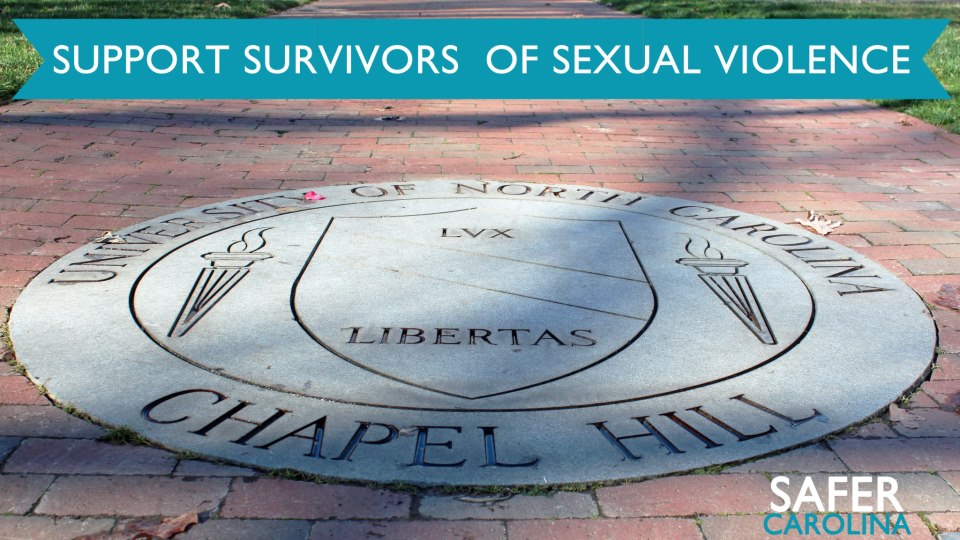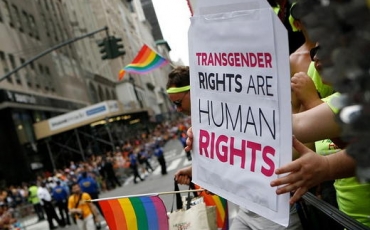 In a development that surprised exactly no one who has been following the recent stories of mishandled sexual violence reports at the University of North Carolina at Chapel Hill, the Department of Education’s Office of Civil Rights has agreed to investigate the school’s policies and practices.
In a development that surprised exactly no one who has been following the recent stories of mishandled sexual violence reports at the University of North Carolina at Chapel Hill, the Department of Education’s Office of Civil Rights has agreed to investigate the school’s policies and practices.
The investigation is prompted by a complaint filed in January by UNC students, alumni, and a former administrator. Although the complaint is not a law suit, and the DOE almost never finds schools “out of compliance”—preferring a collaborative reform process rather than fines—the OCR can refer cases to the Department of Justice if it finds evidence of criminal administrative behavior that a bureaucratic investigation cannot resolve.
The New York Times has a generally strong piece covering the announcement, placing the investigation in the context of recently exposed stories of UNC’s cruelty toward survivors, including the threatened suspension of student Landen Gambill for talking about her rape. However, I take issue with the article’s characterization of school sexual misconduct boards—required under Alexander v. Yale—as nothing more than deficient imitators of the criminal justice system. The Times reports:
In recent years, complaints about the handling or reporting of sexual misconduct cases have been lodged against Boston University, Yale University, Amherst College, Wesleyan University, Pennsylvania State University and others.
The complaints point to the balance that colleges and universities must strike in operating quasi-judicial systems that lack the expertise, the resources or the rules of evidence found in the criminal justice system. The federal government and watchdog groups demand that colleges both take aggressive action against sexual violence and protect the rights of the accused.
If schools really are just trying to run their own little courts without “the expertise, the resources or the rules of evidence,” the obvious question is why these boards exist at all: shouldn’t all survivors simply report straight to the police? There are a couple reasons, though, why universities need their own response systems, and why these can’t just be mini versions of the mainstream system.
Firstly, the needs of student survivors are unique, and require a tailored reporting mechanism. When I reported an attempted rape to my school’s grievance board freshman year, my immediate motivation was to get my assailant removed from my 15-person seminar. That required action more quickly than the police would have been able to respond, within a sphere they would have had trouble navigating. What does the New Haven Police Department know about class drop deadlines?
Further, as anyone whose knowledge of sexual violence extends beyond Marisa Hargitay’s patented Concerned Stare, the criminal justice system is no great ally to victims. Police officers are too often perpetrators or enablers themselves, trials are often just slut–shaming/victim–blaming jubilees, and, despite the small fraction of rapes that are reported, acquittals are the rule. Yet, while we can protest the ideological motivation for such quick forgiveness of rapists, we can’t forget that the prisons to which we seek to send them are inherently cruel institutions that facilitate sexual assault. It is unconscionable that the criminal justice system demands that survivors either remain silent or condemn their assailants to the same violence they have suffered.
Given the dismal state of the American police, court, and prisons systems, and despite my disappointment with college and university’s continual failure to combat sexual violence, I see great radical potential for transformative justice—responses to crime that seek to rectify harm and build community rather than simply punish, generally dismissed as the domain of fringe grassroots groups—in school sexual misconduct boards. What other resource-rich institutions are in the position to address assault and harassment as collective problems rather than the missteps of deviants? Where else outside deliberate radical communities could survivors and allies have such a hands-on role directing their search for justice? Which other mainstream system is poised to address the often complicated relationships and intertwined lives of victims and assailants, whether they be classmates, lovers, spouses, co-workers, or relatives? Who else has the authority simultaneously to protect survivors and, informed by the faith in humanity’s ability to better itself inherent to the academy’s mission, to compel perpetrators to change?
One administrator at my alma mater told me a victim had insisted that, as part of her case’s resolution, her assailant take a women’s studies class on sexual violence upon his return to campus. That strikes me as a much more productive education than years of violence in a cage.
None of this is to say that schools like UNC and Amherst are currently approaching sexual violence in a compassionate, just manner. The reality couldn’t be further from the truth. These institutions view rape first and foremost as a PR problem, rather than a threat to student well-being and equal access to education, and the schools’ insularity and power over survivors too often silence the victimized.
But the present tragic status of these boards doesn’t mean we should abandon the model in favor of the mainstream criminal justice system. While college and universities may currently lack “the expertise, the resources or the rules of evidence,” community is a powerful resource. With tireless work and an infusion of feminist ethics, academic sexual misconduct boards could transform from cruel in-house intimidators to national models for truly just approaches to violence.



Join the Conversation